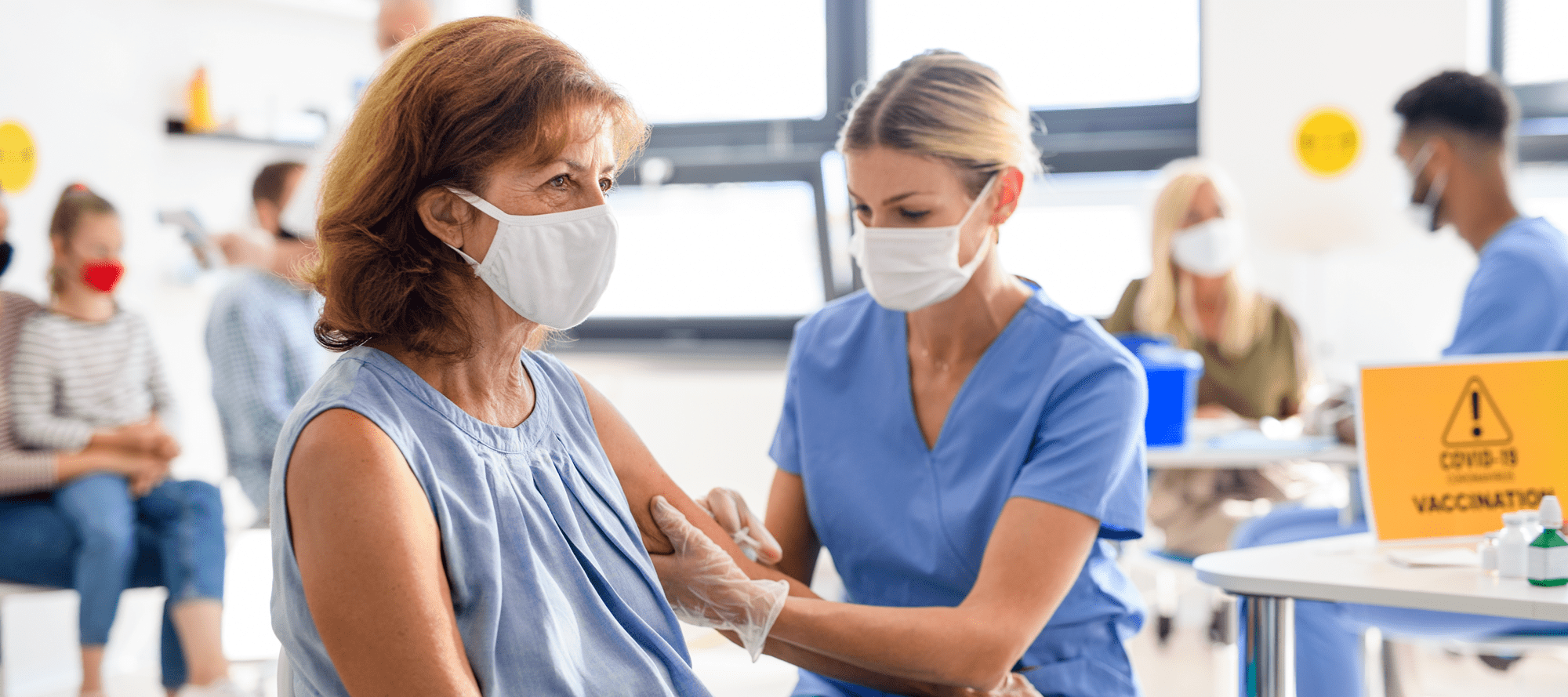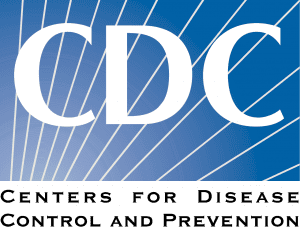- Novavax COVID-19 Vaccine Demonstrates 89.3% Efficacy in UK Phase 3 Trial
Novavax announced that NVX-CoV2373, its protein-based COVID-19 vaccine candidate, met the primary endpoint, with a vaccine efficacy of 89.3%, in its Phase 3 clinical trial conducted in the United Kingdom (UK). The study assessed efficacy during a period with high transmission and with a new UK variant strain of the virus emerging and circulating widely. It was conducted in partnership with the UK Government’s Vaccines Taskforce. Novavax also announced successful results of its Phase 2b study conducted in South Africa. NVX-CoV2373 contains a full-length, prefusion spike protein made using Novavax’ recombinant nanoparticle technology and the company’s proprietary saponin-based Matrix-M™ adjuvant. The purified protein is encoded by the genetic sequence of the SARS-CoV-2 spike (S) protein and is produced in insect cells. It can neither cause COVID-19 nor can it replicate, is stable at 2°C to 8°C (refrigerated) and is shipped in a ready-to-use liquid formulation that permits distribution using existing vaccine supply chain channels. The study enrolled more than 15,000 participants between 18-84 years of age, including 27% over the age of 65. The primary endpoint of the UK Phase 3 clinical trial is based on the first occurrence of PCR-confirmed symptomatic (mild, moderate or severe) COVID-19 with onset at least 7 days after the second study vaccination in serologically negative (to SARS-CoV-2) adult participants at baseline. The first interim analysis is based on 62 cases, of which 56 cases of COVID-19 were observed in the placebo group versus 6 cases observed in the NVX-CoV2373 group, resulting in a point estimate of vaccine efficacy of 89.3% (95% CI: 75.2 – 95.4). Of the 62 cases, 61 were mild or moderate, and 1 was severe (in placebo group). Preliminary analysis indicates that the UK variant strain that was increasingly prevalent was detected in over 50% of the PCR-confirmed symptomatic cases (32 UK variant, 24 non-variant, 6 unknown). Based on PCR performed on strains from 56 of the 62 cases, efficacy by strain was calculated to be 95.6% against the original COVID-19 strain and 85.6% against the UK variant strain [post hoc]. The interim analysis included a preliminary review of the safety database, which showed that severe, serious, and medically attended adverse events occurred at low levels and were balanced between vaccine and placebo groups
- Johnson & Johnson Announces Single-Shot Janssen COVID-19 Vaccine Candidate Met Primary Endpoints in Interim Analysis of its Phase 3 ENSEMBLE Trial
Johnson & Johnson announced topline efficacy and safety data from the Phase 3 ENSEMBLE clinical trial, demonstrating that the investigational single-dose Adenovirus 26 vectored COVID-19 vaccine met all primary and key secondary endpoints. The topline safety and efficacy data are based on 43,783 participants accruing 468 symptomatic cases of COVID-19. The Phase 3 ENSEMBLE study is designed to evaluate the efficacy and safety of the Janssen COVID-19 vaccine candidate in protecting moderate to severe COVID-19, with co-primary endpoints of 14 days and 28 days following vaccination. Among all participants from different geographies and including those infected with an emerging viral variant, Janssen’s COVID-19 vaccine candidate was 66% effective overall in preventing moderate to severe COVID-19, 28 days after vaccination. The onset of protection was observed as early as day 14. The level of protection against moderate to severe COVID-19 infection was 72% in the United States, 66% in Latin America and 57% in South Africa, 28 days post-vaccination. The vaccine candidate was 85 percent effective in preventing severe disease across all regions studied, 28 days after vaccination in all adults 18 years and older. Efficacy against severe disease increased over time with no cases in vaccinated participants reported after day 49.
- SARS-CoV-2 Neutralizing Antibody LY-CoV555 in Outpatients with Covid-19
In this ongoing phase 2 trial involving outpatients with recently diagnosed mild or moderate Covid-19, we randomly assigned 452 patients to receive a single intravenous infusion of neutralizing antibody LY-CoV555 in one of three doses (700 mg, 2800 mg, or 7000 mg) or placebo and evaluated the quantitative virologic end points and clinical outcomes. The primary outcome was the change from baseline in the viral load at day 11. The results of a preplanned interim analysis as of September 5, 2020, are reported here. In this ongoing phase 2 trial involving outpatients with recently diagnosed mild or moderate Covid-19, 452 patients were randomly assigned to receive a single intravenous infusion of neutralizing antibody LY-CoV555 in one of three doses (700 mg, 2800 mg, or 7000 mg) or placebo and evaluated the quantitative virologic end points and clinical outcomes. The primary outcome was the change from baseline in the viral load at day 11. The results of a preplanned interim analysis as of September 5, 2020, are reported. At the time of the interim analysis, the observed mean decrease from baseline in the log viral load for the entire population was −3.81, for an elimination of more than 99.97% of viral RNA. For patients who received the 2800-mg dose of LY-CoV555, the difference from placebo in the decrease from baseline was −0.53 (95% confidence interval [CI], −0.98 to −0.08; P=0.02), for a viral load that was lower by a factor of 3.4. Smaller differences from placebo in the change from baseline were observed among the patients who received the 700-mg dose (−0.20; 95% CI, −0.66 to 0.25; P=0.38) or the 7000-mg dose (0.09; 95% CI, −0.37 to 0.55; P=0.70). On days 2 to 6, the patients who received LY-CoV555 had a slightly lower severity of symptoms than those who received placebo. The percentage of patients who had a Covid-19–related hospitalization or visit to an emergency department was 1.6% in the LY-CoV555 group and 6.3% in the placebo group. In this interim analysis of a phase 2 trial, one of three doses of neutralizing antibody LY-CoV555 appeared to accelerate the natural decline in viral load over time, whereas the other doses had not by day 11.
- REGENERON REPORTS POSITIVE INTERIM DATA WITH REGEN-COV™ ANTIBODY COCKTAIL USED AS PASSIVE VACCINE TO PREVENT COVID-19
Regeneron Pharmaceuticals, Inc. announced positive initial results from an ongoing Phase 3 clinical trial evaluating REGEN-COV™(casirivimab and imdevimab antibody cocktail) used as a passive vaccine for the prevention of COVID-19 in people at high risk of infection (due to household exposure to a COVID-19 patient). The trial is being run jointly with the National Institute of Allergy and Infectious Diseases (NIAID), part of the National Institutes of Health (NIH). An exploratory analysis was conducted on the first approximately 400 evaluable individuals enrolled in the trial, who were randomized to receive passive vaccination with REGEN-COV (1,200 mg via subcutaneous injections) or placebo. Passive vaccination with REGEN-COV resulted in 100% prevention of symptomatic infection (8/223 placebo vs. 0/186 REGEN-COV), and approximately 50% lower overall rates of infection (symptomatic and asymptomatic) (23/223 placebo vs. 10/186 REGEN-COV). The lower number of infections occurring with REGEN-COV therapy were all asymptomatic, with decreased peak virus levels and short duration of viral shedding. Infections occurring in the placebo group had, on average, more than 100-fold higher peak viral load. Infections in the REGEN-COV group lasted no more than 1 week, while approximately 40% of infections in the placebo group lasted 3-4 weeks. No infected individuals in the REGEN-COV group had high viral loads (>10^4 copies/mL) compared to 62% of the infected placebo group (13/21 placebo vs. 0/9 REGEN-COV). REGEN-COV was associated with lower disease burden: Fewer total viral shedding weeks (44 weeks placebo vs. 9 weeks REGEN-COV), fewer total high viral shedding weeks (>10^4 copies/mL) (22 weeks placebo vs. 0 weeks REGEN-COV), and fewer total symptomatic weeks (18 weeks placebo vs. 0 weeks REGEN-COV).
- COLCORONA topline results: Colchicine reduces hospitalization, death in COVID-19
Colchicine reduced hospitalization and mortality in patients with COVID-19 by more than 20%, according to topline results of the COLCORONA randomized trial. For the contactless, randomized, double-blind, placebo-controlled trial, researchers in Canada, U.S., Europe, South America and South Africa evaluated the efficacy of colchicine in lowering the risk for severe complications associated with COVID-19. COLCORONA included approximately 4,488 patients with COVID-19 and at least one other risk factor for COVID-19 complications, who were not hospitalized at the time of enrollment. In the overall cohort, colchicine reduced death or hospitalization by 21% compared with placebo, a result that approached statistical significance. In an analysis of 4,159 patients who had a confirmed COVID-19 diagnosis from a nasopharyngeal PCR test, compared with placebo, colchicine reduced hospitalizations by 25%, the need for mechanical ventilation by 50% and mortality by 44%, and these results were statistically significant.
- COVID-19 Cases and Transmission in 17 K–12 Schools — Wood County, Wisconsin, August 31–November 29, 2020
Among 17 rural Wisconsin schools, reported student mask-wearing was high, and the COVID-19 incidence among students and staff members was lower than in the county overall (3,453 versus 5,466 per 100,000). Among 191 cases identified in students and staff members, only seven (3.7%) cases, all among students, were linked to in-school spread. With masking requirements and student cohorting, transmission risk within schools appeared low, suggesting that schools might be able to safely open with appropriate mitigation efforts in place.
Situation Dashboards

World Health Organization (WHO)
Novel Coronavirus (COVID-19) Situation from World Health Organization (WHO)

Johns Hopkins University (JHU)
Coronavirus COVID-19 Global Cases by the Center for Systems Science and Engineering (CSSE) at JHU

COVID-19 in US and Canada
1Point3Acres Real-Time Coronavirus (COVID-19) Updates in US and Canada with Credible Sources

Genomic Epidemiology COVID-19
Genomic Epidemiology of (COVID-19) Maintained by the Nextstrain team, enabled by data from GISAID.






